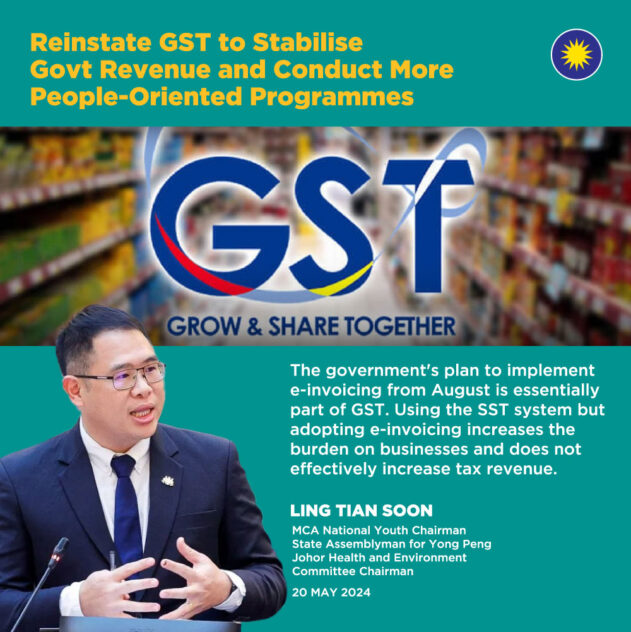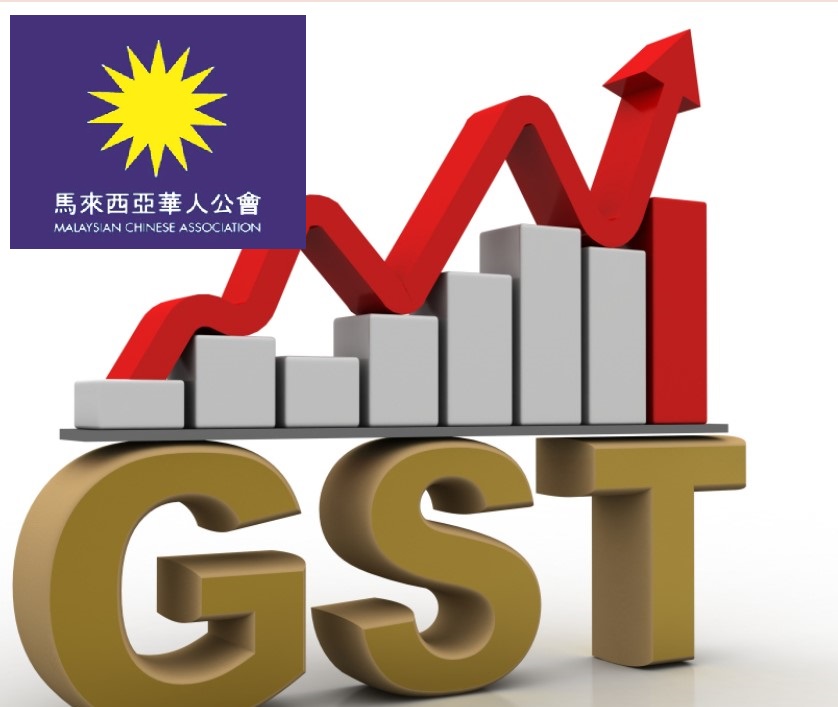PUTRAJAYA has been urged to look positively at the proposal by the Johor state government and MCA to reinstate the Goods and Services Tax (GST).
This is because restoring the GST will enable the government to have a stable source of income to drive more people-oriented programmes and to propel national economic growth, according to MCA National Youth chairman Ling Tian Soon.
“GST which has been proven to be an effective system in all countries that implemented it seeks to create a win-win situation for both the rakyat and the government,” the Yong Peng state assemblyman pointed out in a media statement.
“During the annual MCA General Assembly, the central delegates had passed a resolution recommending the government to reinstate the GST with a revised tax rate set at 4% to increase our nation’s fiscal revenue and enhance economic development in our country. In so doing, businesses would have sufficient cash flow.”

Stating that the people “no longer chime ABCD GST to incite populist sentiment”, Ling called on the unity government to show that “it possesses the courage to reform and manage the country’s economy in a rational, scientific and effective manner”.
“For too long, Malaysia has been trapped in the middle-income trap, with the wages of Malaysians remaining stagnant,” observed the Johor Health and Environment Committee chairman.
“There are genuine concerns that Malaysia is losing its competitiveness in the export of products, inability to compete with low-cost producers in other countries or unable to enter high-value-added markets and join the ranks of developed economies.
“Such the long-standing challenges which confront us. The series of economic transformations launched during the Barisan Nasional (BN) era, including the introduction of GST, were aimed at helping the country overcome this predicament.”
Drawing a comparison, Ling claimed that GST not only reins in substantial tax revenue to the country but “more importantly, it is transparent, fair and effective compared to the Sales and Services Tax (SST)”.
“Moreover, the government’s plan to implement e-invoicing from August is essentially part of GST. Using the SST system but adopting electronic invoicing increases the burden on businesses and does not effectively increase tax revenue,” he justified.
“Only via increased national income can we improve the quality of life for people and provide better protection for the low- and middle-income groups.” – May 21, 2024









